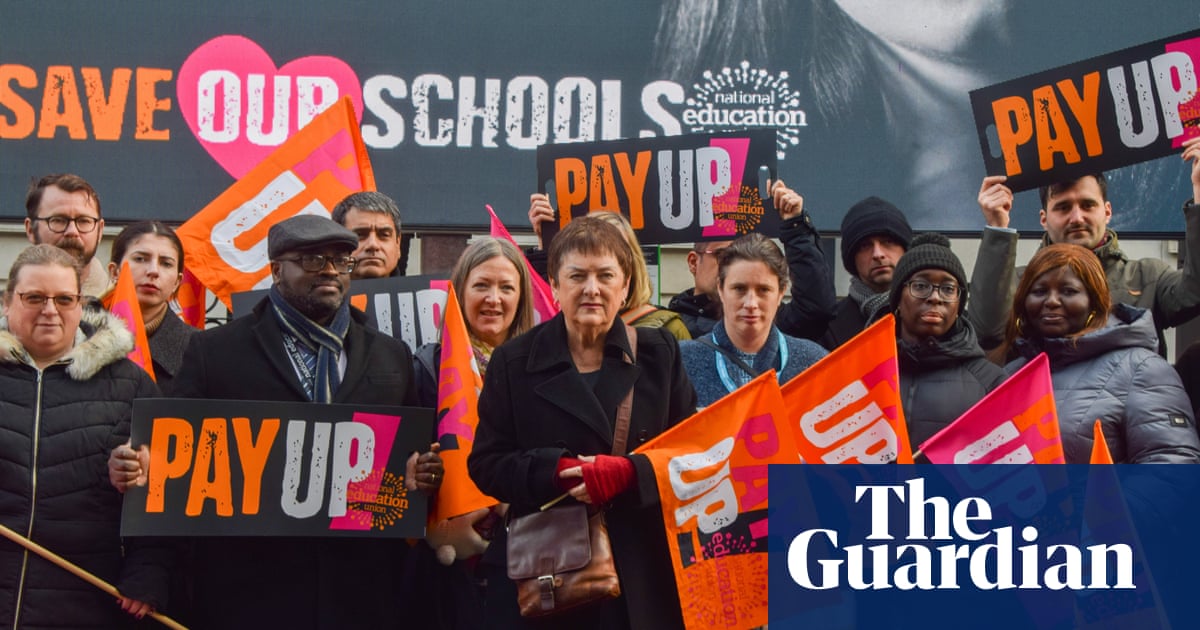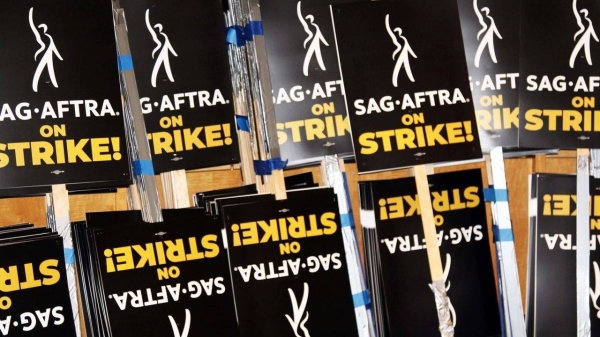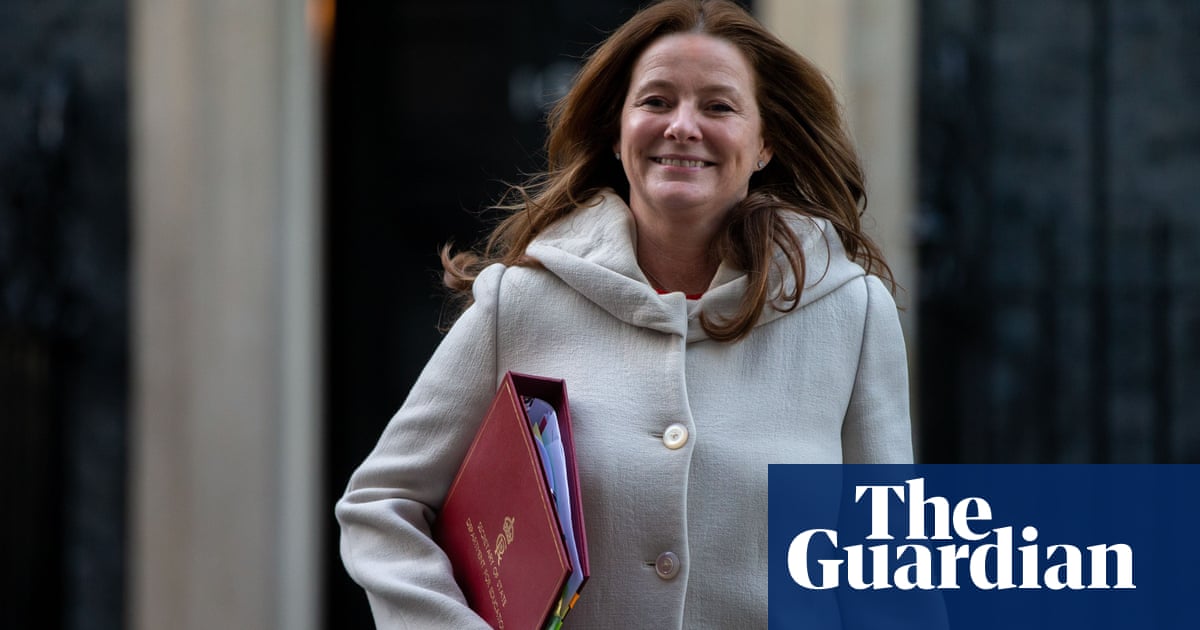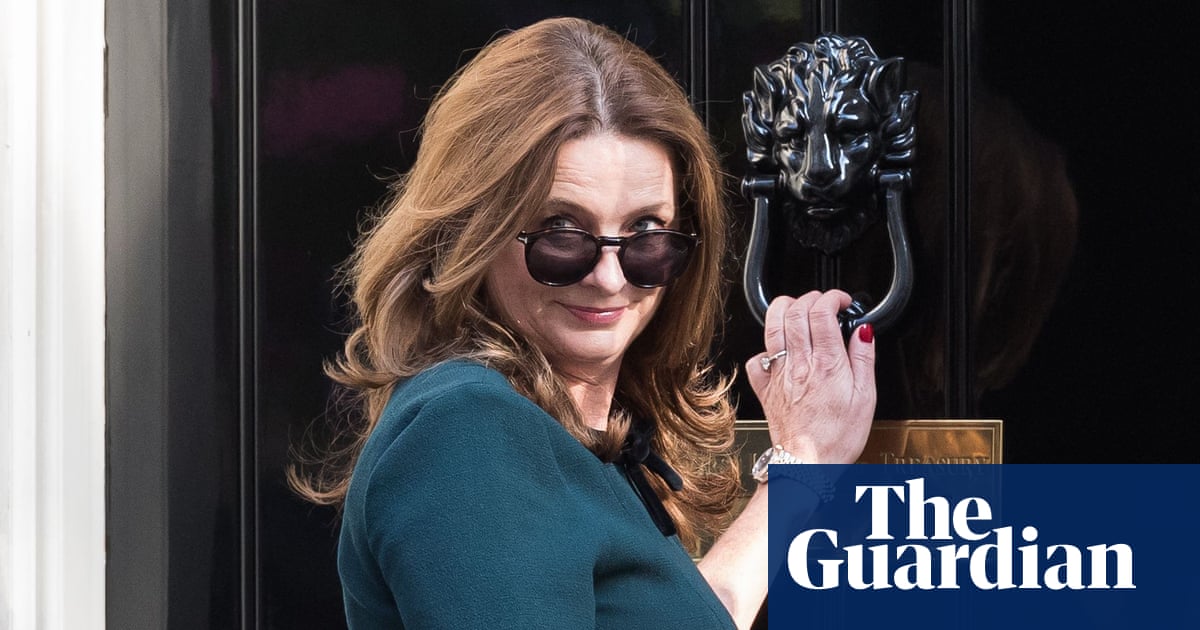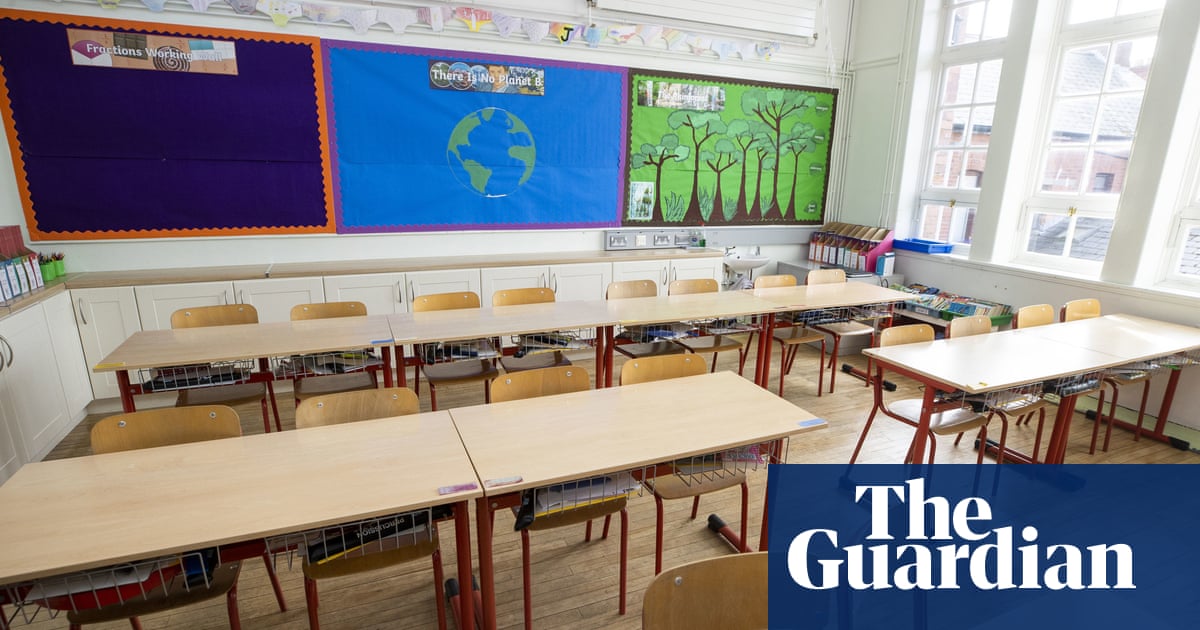
The threat of strike action still hangs over schools in England after talks between teaching unions and the education secretary, Gillian Keegan, ended with “no concrete progress”, although the door remains open for further discussions.
Union leaders described the meeting as constructive, but with no extra money for teachers on the table, strikes could be just weeks away. Ballots for strike action among hundreds of thousands of union members are due to close this week.
The National Education Union (NEU) said the Department for Education (DfE) had downplayed any suggestion of addressing this year’s below-inflation pay offer, and there had been no promises on improved pay next year.
Nevertheless, leaders of all four of the unions who attended Monday’s meeting have offered to clear their diaries for further talks, in the hope of averting strike action, which would close many state schools and force parents to take time off work.
Mary Bousted and Kevin Courtney, the NEU joint general secretaries, said: “If the government wants to avoid industrial action then there is only a small window of opportunity before the NEU declares its ballot result and its plans for action. No one wants to strike and the government can avoid it by talking and making concrete progress on pay.”
Patrick Roach, the general secretary of the NASUWT teachers’ union, added: “Given the pressing issues, the minister must now intensify and accelerate a programme of further talks. We have been clear we will meet any time and any place to discuss these issues and that we will commit the time necessary to make progress. However, we will remain in dispute with the government unless tangible progress is forthcoming.”
Geoff Barton, the general secretary of the Association of School and College Leaders (ASCL), said: “The meeting was constructive but largely unsatisfactory in that our concerns over the long-term erosion of teacher pay and conditions, the inadequacy of this year’s pay award, and the ongoing teacher recruitment and retention crisis remain unresolved.”
A DfE spokesperson said there had been discussions about next year’s pay award, but the education secretary had listened to union leaders’ broader concerns and expressed her willingness to continue talks over the coming days and weeks.
They said: “These discussions build on previous meetings and correspondence, including where unions called for an extra £2bn uplift for schools next year and the year after, which the government delivered in the autumn statement.”
In Scotland, last-ditch talks between government officials and teaching unions on Monday failed to prevent industrial action this week. Union members at primary schools in Scotland will go on strike on Tuesday, with staff at secondary schools striking the day after as teaching unions seek higher pay.
EIS, Scotland’s largest teaching union, had said planned industrial action would go ahead if there was no new pay offer. The current offer would see most staff in classrooms receive a 5% pay rise, although the lowest-earning teachers would get a 6.85% increase. Unions in Scotland are asking for a 10% increase.




